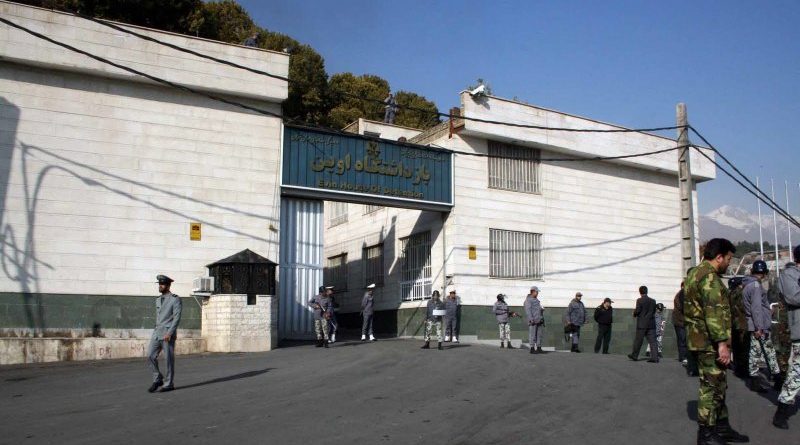EU poster boy held in Iran prison on ‘spying’ charges
Save articles for later
Add articles to your saved list and come back to them any time.
London: A European Union official and poster boy of the diplomatic corp has been imprisoned in Iran for more than 500 days in the latest example of Tehran’s “hostage diplomacy” to extract concessions from the West.
For more than a year, Johan Floderus appeared in adverts to entice Swedes to apply for the bloc’s civil service. His incarceration on spying charges was kept a closely guarded secret by Swedish and EU authorities until now.
The 33-year-old Swede, who was employed by the EU’s foreign affairs service, was arrested at Tehran airport on April 17, 2022, The New York Times reported.
According to the newspaper, the former civil service trainee visited Iran with several Swedish friends on what was described as a private tourist trip.
He had previously visited there in an official capacity as part of his work for the EU without any problems before he joined the European External Action Service (EEAS).
Floderus was charged with espionage, which is strenuously denied, and has been held in the notorious Evin prison in Tehran ever since.
Evin Prison has been the primary site for the housing of Iran’s political prisoners since 1972.
In July 2022 Iran released a statement saying it had arrested a Swedish national.
“We are aware and we have been following very closely the case of a Swedish national detained in Iran,” Peter Stano, the European Commission’s foreign affairs spokesman, said on Tuesday (AEST).
“These cases exactly underline the very concerning tendency of Iranians to use EU nationals or Iranian dual nationals as pawns for political reasons.”
The detention of Floderus stands out from previous cases as he is an established EU official in the diplomatic corp, who had a successful early career worthy of serving as a recruitment advertisement.
Relations between Sweden and Iran have been tense since 2019 when Sweden arrested a former Iranian official for his part in the mass execution and torture of political prisoners in the 1980s.
He was sentenced to life in prison in July 2022, shortly after Floderus’ arrest, prompting Iran to recall its envoy to Sweden in protest.
In May, Iran executed a Swedish-Iranian dissident convicted of leading an Arab separatist group which Tehran blames for several attacks including one on a military parade in 2018 that killed 25 people.
In August, the US made a deal with Iran to free five Americans in exchange for $US6 billion ($9 billion) in withheld Iranian oil revenues and the release of Iranian prisoners.
Nazanin Zaghari-Ratcliffe, a British-Iranian charity worker, was held in Iran for six years on false charges of espionage. She was eventually released in March 2022 after a long-standing disagreement over a British government debt was reached.
Her husband Richard told The New York Times: “This arrest in 2022 was a real escalation […] it is shocking for me that the Swedish government and the EEAS have sat on it.
“My view is that the European governments keeping their new hostage cases quiet last year inevitably led to other escalations by Iran,” Ratcliffe said.
“It is not a coincidence that they then started executing foreign nationals. Hostage diplomacy has shifted into execution diplomacy.”
A Belgian aid worker, Olivier Vandecasteele, was imprisoned in Tehran for 455 days on espionage charges. After his release, he referred to a Swedish fellow prisoner who became like a brother to him.
The European Commission refused to confirm the identity of the detained man or if he worked for EU institutions.
Sweden said it would not comment on the case beyond that it was working on it “intensively”.
“We understand that there is interest in this matter but in our assessment it would complicate the handling of the case if the ministry were to publicly discuss its actions,” Sweden’s Foreign Ministry told the Times.
Iran’s Foreign Ministry spokesman Nasser Kanaani, when asked about report, said he was not aware of it.
The EU is hoping to revive its nuclear deal with Iran, which lifted sanctions in exchange for Tehran halting progress in its attempts to develop nuclear weapons.
The UN nuclear watchdog said on Monday it regretted that “no progress” had been made by Iran on outstanding issues, including reinstalling cameras to monitor Tehran’s nuclear programme and explaining uranium traces.
Iran, however, has slowed down the pace at which it produces uranium enriched up to 60 per cent – close to bomb grade – according to the International Atomic Energy Agency.
The Telegraph, London
Most Viewed in World
From our partners
Source: Read Full Article



